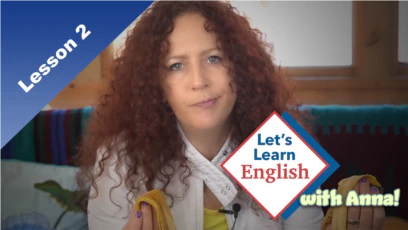☆今日のフレーズ:”hang out”「一緒に遊ぶ、過ごす、ぶらぶらする」
皆さん、こんにちは!今日は、英語の表現「hang out」についてお話しします。この表現を聞いて、どんなイメージが浮かびますか?文字通り「ぶら下がる」という意味ではありません。実は、この表現には友達との楽しい時間を表す意味が込められているんです。
「hang out」は、友達と気軽に一緒に時間を過ごすことを表す表現です。例えば、「Let’s hang out this weekend.」(今週末一緒に過ごそう)と言うかもしれません。この表現は、特に何か特別なことをするわけではなく、ただ一緒にリラックスして時間を過ごすというニュアンスを含んでいます。
この表現の面白いところは、元々は「ぶらぶらする」という意味から派生したことです。友達と特に目的もなくぶらぶらしているイメージが、現代では「気軽に一緒に過ごす」という意味に発展したんですね。日本語で「たむろする」や「たまり場にいる」というのに近いかもしれません。
使用例と場面
使い方は意外と簡単です。友達と気軽に会う約束をしたり、誰かと一緒に時間を過ごしていることを表現したいときに「hang out」を使えばOKです。この表現はカジュアルで、若者を中心に広く使われています。
映画やドラマでこの表現を耳にすることも多いですよ。例えば、人気ドラマ「Friends」(フレンズ)では、主人公たちが「We should hang out sometime.」(いつか一緒に遊ぼうよ)と言うシーンがよくあります。
類似表現と使い分け
次に、似たような表現をいくつか紹介しましょう。
– “chill” (くつろぐ、リラックスする)
– “get together” (集まる、会う)
– “spend time together” (一緒に時間を過ごす)
これらの表現も、「hang out」と同じように、友達と時間を過ごすことを表現するときに使えます。ただし、「hang out」は特にカジュアルで、若者言葉的なニュアンスがあります。
実践的な例文
– “Do you want to hang out at my place tonight?” (今夜うちで一緒に過ごさない?)
– “I usually hang out with my friends at the local coffee shop.” (普段は地元のカフェで友達と過ごしているよ。)
– “We’re just hanging out, nothing special.” (特に何もしてないよ、ただくつろいでるだけ。)
英語の表現の中には、このように文化や世代の違いが色濃く反映されているものがたくさんあります。「hang out」を覚えて使ってみると、英語でのカジュアルなコミュニケーションがより自然になりますよ。
【今日のまとめ】
フレーズ:hang out
意味:一緒に遊ぶ、過ごす
例文:Let’s hang out this weekend.
和訳:今週末一緒に過ごそう。
ワンポイント豆知識:この表現は、1830年代にアメリカで使われ始めたと言われています。元々は「ぶらぶらする」という意味でしたが、時代とともに「友達と気軽に過ごす」という意味に変化しました。現代では、SNSなどでも頻繁に使われる表現で、「HMU if you wanna hang out」(一緒に遊びたかったら連絡して)のような使い方も一般的です。また、「hang out」は動詞としてだけでなく、「hangout」として名詞でも使われ、「たまり場」や「集まる場所」を意味することもあります。

【英語訳】
Today’s Phrase
“Spend time together, hang out”
⇒ hang out
Hello everyone! Today, we’ll be talking about the English expression “hang out.” What image comes to mind when you hear this phrase? It doesn’t literally mean “to suspend” or “to dangle.” In fact, this expression carries a meaning of enjoying time with friends.
“Hang out” is an expression that means to casually spend time with friends. For example, you might say, “Let’s hang out this weekend.” This phrase implies spending time together in a relaxed manner, without necessarily doing anything special.
An interesting aspect of this expression is that it originally derived from the meaning “to loiter.” The image of aimlessly wandering around with friends has evolved into the modern meaning of “casually spending time together.” It might be similar to the Japanese expressions “tamuro suru” or “tamari-ba ni iru.”
Usage and Context
Using this phrase is surprisingly simple. You can use “hang out” when making casual plans with friends or expressing that you’re spending time with someone. This expression is casual and widely used, especially among young people.
You’ll often hear this expression in movies and TV shows. For instance, in the popular series “Friends,” the main characters often say things like, “We should hang out sometime.”
Similar Expressions and Distinctions
Let’s introduce a few similar expressions:
“chill” (relax, take it easy)
“get together” (meet up, gather)
“spend time together”
These expressions can also be used to describe spending time with friends, similar to “hang out.” However, “hang out” is particularly casual and has a youthful connotation.
Practical Examples
“Do you want to hang out at my place tonight?”
“I usually hang out with my friends at the local coffee shop.”
“We’re just hanging out, nothing special.”
Many English expressions, like this one, strongly reflect cultural and generational differences. Learning and using “hang out” can make your casual English communication more natural.
Today’s Summary
Phrase: hang out
Meaning: spend time together, socialize
Example: Let’s hang out this weekend.
Fun fact: This expression is said to have originated in America in the 1830s. It initially meant “to loiter” but evolved over time to mean “casually spending time with friends.” In modern usage, it’s frequently used on social media, with phrases like “HMU if you wanna hang out” (Hit me up if you want to hang out) being common. Additionally, “hang out” can be used not only as a verb but also as a noun “hangout,” meaning a gathering place or a spot where people congregate.








